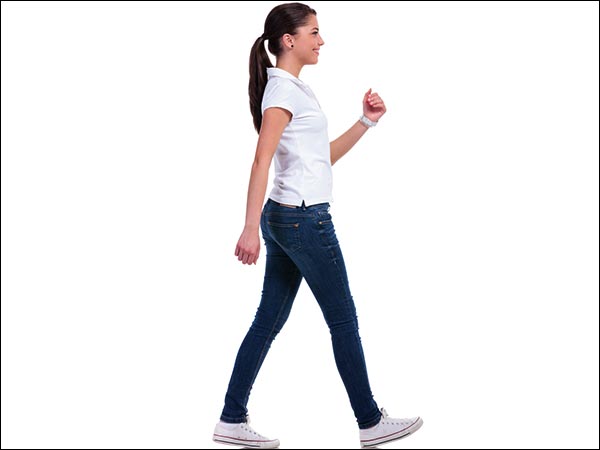Just In
- 3 hrs ago

- 7 hrs ago

- 10 hrs ago

- 11 hrs ago

Don't Miss
- Sports
 KKR vs RCB: Twitter Hails as Virat Kohli and Gautam Gambhir Spotted having 'Friendly' Chat
KKR vs RCB: Twitter Hails as Virat Kohli and Gautam Gambhir Spotted having 'Friendly' Chat - Education
 Assam Class 10 Result 2024 Declared: Anurag Emerged as the Top Performer With 593 Marks
Assam Class 10 Result 2024 Declared: Anurag Emerged as the Top Performer With 593 Marks - Finance
 2 Tata Group Dividend Stocks To Buy/Sell After Q4 Results, Dividend Announcement
2 Tata Group Dividend Stocks To Buy/Sell After Q4 Results, Dividend Announcement - Movies
 Maidaan Vs BMCM Box Office Collection Day 9: Ajay Devgn's Film Falls Way Behind The Akshay-Tiger Starrer
Maidaan Vs BMCM Box Office Collection Day 9: Ajay Devgn's Film Falls Way Behind The Akshay-Tiger Starrer - News
 Bengaluru Water Crisis: PM Modi Slams Karnataka Congress, Says Mismanagement Turned Tech City To Tanker City
Bengaluru Water Crisis: PM Modi Slams Karnataka Congress, Says Mismanagement Turned Tech City To Tanker City - Automobiles
 Tata Altroz Records a 55% Sales Growth in March 2024
Tata Altroz Records a 55% Sales Growth in March 2024 - Technology
 Best Noise-Cancelling Earbuds Under Rs 5,000: CMF Buds Pro, Redmi Buds 5, Realme Buds Air 5, and More
Best Noise-Cancelling Earbuds Under Rs 5,000: CMF Buds Pro, Redmi Buds 5, Realme Buds Air 5, and More - Travel
 Journey From Delhi To Ooty: Top Transport Options And Attractions
Journey From Delhi To Ooty: Top Transport Options And Attractions
Your Walk May Predict Decline In Memory & Thinking
As per this study, individuals who have problems with their walking technique, like reduced speed, imbalance, etc., can be at a risk of declining memory and thinking capacity.
Individuals who suffer problems associated with walking such as reduced speed, imbalance, among others, can be at a significant risk of developing decline in memory and thinking, a study has found.
Walking is part of the complex cognitive task known as gait that includes everything from a person's stride length to the accompanying swing of each arm.
Previous studies have reported that slower gait speed might predict cognitive impairment and dementing illnesses, supporting the role of gait speed as a possible subclinical marker of cognitive impairment.

In the study, researchers from Mayo Clinic in Minnesota, US, used a non-invasive computerised gait analysis test that could identify patients at high risk for cognitive decline and to target appropriate therapies.
They measured gait parameters, such as stride length, ambulatory time, gait speed, step count, cadence, stance time, arm swing on each patients.
The results showed that alterations in several of the gait parameters were associated with decline in memory, thinking and language skills, and visual perception of the spatial relationship of objects.
"The presence of gait disturbances increases with advancing age and affects the independence of daily living, especially in the elderly," said lead author Rodolfo Savica, neurologist at Mayo Clinic.
For the study, the researchers analysed 3,426 cognitively normal participants who were between ages 70 to 89.
The study was published in the Journal of Alzheimer's Disease.
Inputs From IANS
-
 healthReducing Stroke Risk in India: The Role of Daily Walking
healthReducing Stroke Risk in India: The Role of Daily Walking -
 healthBenefits Of Walking 20 Minutes Daily In Your 30s & 40s
healthBenefits Of Walking 20 Minutes Daily In Your 30s & 40s -
 healthCan Walking For 30 Minutes Everyday Reduce Belly Fat? Is It More Beneficial For Post-menopausal Women?
healthCan Walking For 30 Minutes Everyday Reduce Belly Fat? Is It More Beneficial For Post-menopausal Women? -
 diet fitnessWomen’s Day: How Many Steps A Day Can Help Reduce Heart Attack Risk In Women Over 70?
diet fitnessWomen’s Day: How Many Steps A Day Can Help Reduce Heart Attack Risk In Women Over 70? -
 diet fitnessCan’t Get Your Daily Steps? Here Are Some Simple Tricks To Walk 10000 Steps Everyday
diet fitnessCan’t Get Your Daily Steps? Here Are Some Simple Tricks To Walk 10000 Steps Everyday -
 diet fitnessCan A 5-Minute Walk Reduce The Effects Of Prolonged Sitting?
diet fitnessCan A 5-Minute Walk Reduce The Effects Of Prolonged Sitting? -
 diet fitnessDo You Walk Every Day? Here Are 10 Common Walking Mistakes To Avoid
diet fitnessDo You Walk Every Day? Here Are 10 Common Walking Mistakes To Avoid -
 wellness4 Reasons Why You Shouldn't Walk Barefoot At Home, Especially Women Over 50
wellness4 Reasons Why You Shouldn't Walk Barefoot At Home, Especially Women Over 50 -
 wellness10 Health Benefits Of Beginning Your Day With A Walk
wellness10 Health Benefits Of Beginning Your Day With A Walk -
 diabetesBest Exercises For People With Diabetes
diabetesBest Exercises For People With Diabetes -
 kidsHow To Deal With In-Toeing And Out-Toeing In Children
kidsHow To Deal With In-Toeing And Out-Toeing In Children -
 wellness16 Surprising Health Benefits Of Walking Daily
wellness16 Surprising Health Benefits Of Walking Daily


 Click it and Unblock the Notifications
Click it and Unblock the Notifications



